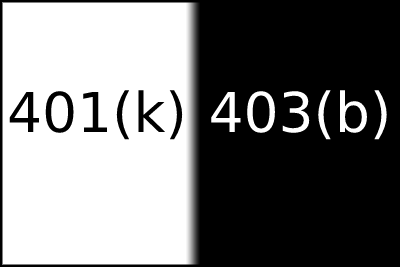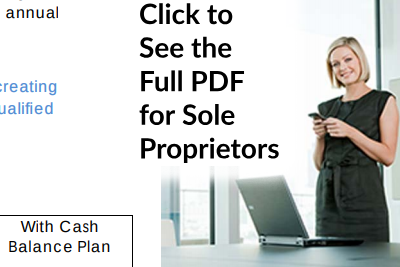The Shore Tompkins Blog
401(k) Plans

What Type of Retirement Plan Should My Business Implement? – Part 4
401(k) Plan Basics A 401(k) plan allows employees to make contributions to a retirement plan from their pay. This is called a 401(k) deferral because instead of receiving all of their pay, the employee directs the employer to deposit a portion of their pay in the...

What Type of Retirement Plan Should My Business Implement? – Part 3
In Part 2, we discussed that 401(k) plans are a good retirement plan to consider when trying to attract and retain top talent for your business. But what are your 401(k) plan options? There are actually quite a few and we provide practical pointers to help you...

What Type of Retirement Plan Should My Business Implement? – Part 8
The Benefits of Saving in a Retirement Plan or IRA Why should someone save in an IRA or a retirement plan, instead of a regular savings account? Individual Retirement Accounts (IRAs) and retirement plans provide tax advantages that a regular savings account does...

What Type of Retirement Plan Should My Business Implement? – Part 2
In Part 1, we talked about how a SEP plan can work nicely for an owner of a business with no employees. But what is the right plan for a company with employees? Usually the best place to start is finding out the answer to this question: Why does the business want to...

What Type of Retirement Plan Should My Business Implement? – Part 7
Safe Harbor 401(k) Plan Basics A safe harbor 401(k) plan is simply a 401(k) plan that includes a safe harbor feature. There are a few options when it comes to the safe harbor feature, but by electing this feature, the employer commits to making minimum contributions...

The Roth 401k: An Option for Higher Earners
When thinking of retirement, most workers (and their employers) probably associate the name “Roth” with the letters “IRA.” After all, the Roth IRA has been around since the 1998 tax year and has been widely embraced by many individuals seeking to maximize their...

Which Retirement Plan is Better for Nonprofits: 401(k) or 403(b)?
SummaryBefore implementing a new retirement plan, nonprofits should work with a retirement plan professional who can help the organization navigate these questions. Doing so will help the nonprofit determine if the 401(k) or 403(b) plan is right for them. The above...

3 Types of Automatic Enrollment in Plans
Employers and lawmakers have long grappled with how to increase employee participation in company-sponsored retirement plans. While participation has risen in recent years, especially at larger companies that have implemented automatic enrollment, the Department of...
Target Date Funds: New Guidance from DOL
In February the Department of Labor's Employee Benefits Security Administration (EBSA) issued new guidance for plan fiduciaries regarding Target Date Funds (TDFs), a relatively new and increasingly popular destination for retirement plan contributions. Although the...
QDIA: Protection for Plan Sponsors
Automatic enrollment (AE) in company retirement plans can help workers increase their retirement savings, but it presents a challenge: How should the employer invest the dollars of employees who do not affirmatively choose an investment vehicle for their contributions...
Cash Balance Plans

Cash Balance Retirement Plans? Definitely!
You may have heard of “Cash Balance” pension plans. Yes, you must! Investment advisors should broaden their offerings to include cash balance plans, as they have rapidly become one of the most popular retirement plan design options in recent years.

Save Taxes and Accumulate Greater Wealth for Your Retirement
If you are a business owner or receive self-employment income as an independent contractor, you may be able to eliminate current taxes on a significant portion of your income and accumulate greater wealth for yourself and your family. Unlike certain, more traditional...

Sole Proprietors Should Know About Cash Balance Plans
Click above to see how much your company could benefit from a Cash Balance Plan. For sole proprietors, the top priority typically is winning new business while delivering great value to current customers. That daily "balancing act" can take so much of your time, it's...

How Do Cash Balance Plans Work?
Cash Balance plans have become very popular with business owners looking to save on taxes and accumulate more long-term wealth. But how do they work? A Cash Balance pension is a qualified retirement plan under IRS guidelines known as a hybrid defined benefit plan...
Other Retirement Plans

What Type of Retirement Plan Should My Business Implement? – Part 8
The Benefits of Saving in a Retirement Plan or IRA Why should someone save in an IRA or a retirement plan, instead of a regular savings account? Individual Retirement Accounts (IRAs) and retirement plans provide tax advantages that a regular savings account does...

Which Retirement Plan is Better for Nonprofits: 401(k) or 403(b)?
SummaryBefore implementing a new retirement plan, nonprofits should work with a retirement plan professional who can help the organization navigate these questions. Doing so will help the nonprofit determine if the 401(k) or 403(b) plan is right for them. The above...

3 Types of Automatic Enrollment in Plans
Employers and lawmakers have long grappled with how to increase employee participation in company-sponsored retirement plans. While participation has risen in recent years, especially at larger companies that have implemented automatic enrollment, the Department of...

Fiduciary Tips for Defined Benefit Plans – Part 2 – Selecting an Annuity Provider
As an executive with oversight responsibilities for a frozen pension plan you begin to see the light at the end of a long journey – plan termination is near or winding up. You climbed that mountain of pension liability, now fully funded through cash contributions,...
